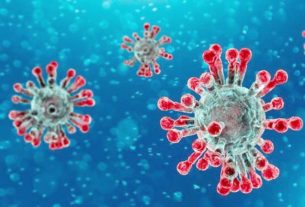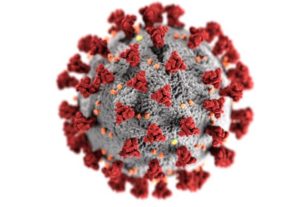From Our Bureau
6TH AUGUST 2020
The Corona Virus (COVID-19) pandemic situation remained grim globally, with the confirmed cases across the world soaring to 1,86,14,177 and the death toll rising to 7,02,642 in the 216 affected countries and territories, according to the latest update from the World Health Organization (WHO).
Globally, American region continued to be the worst-hit with 99,81,204 confirmed cases and 3,72,008 deaths. Europe came next with 34,77,225 confirmed cases and 2,15,168 deaths. South-East Asia region’s tally stood at 23,60,721 confirmed cases and 49,572 deaths.
Eastern Mediterranean region reported 15,98,640 confirmed cases and 42,052 deaths. African region registered 8,48,053 confirmed cases and 15,252 deaths. Western Pacific region recorded 3,47,593 confirmed cases and 8,577 deaths. WHO Risk Assessment at global level remained very high.
The WHO Regional Office for the Americas has issued a warning against the use of chlorine products as treatment for COVID-19. WHO recommends that people avoid consuming products containing chlorine dioxide or related substances (sodium hypochlorite, bleach, etc.) and that all marketing of such products for therapeutic purposes be reported to the authorities.
The South African COVID-19 response is being bolstered by a surge team of health experts from WHO. The surge team will be jointly led by Dr Matshidiso Moeti, WHO Regional Director for Africa and Dr Michael Ryan, Executive Director of the WHO Health Emergencies Programme. Forty-three experts from various fields will be deployed to support the COVID-19 outbreak response management.
The WHO Regional Office for South-East
Asia has urged countries in the region to maintain essential healthcare and
accelerate the resumption of services that have been disrupted, by the
pandemic, as an integral part of the COVID-19 response. Since the outbreak of
COVID-19, repurposing of health workers, cancellation of elective care, closure
of outpatient services, insufficient personal protective equipment, and changes
in treatment policy have significantly impacted the delivery of essential
services.
“The
world spends billions every year preparing for potential terrorist attacks but
we’ve learned lessons the hard way that unless we invest in pandemic preparedness
and the climate crisis, we leave ourselves open to enormous harm,” he observed.
“Since WHO was created over seven decades ago, we have worked to galvanise collective international public health action to build a healthier and safer future for humanity. From ending smallpox, to bringing polio to the brink of eradication; from rolling out treatment for HIV, TB and malaria to millions of people across the world, to responding to hundreds of emergencies,” he pointed out.
“Building up all health systems and ensuring health for all is our best shot at delivering on the goal of global health security. Fifteen years ago, the global community came together and adopted the International Health Regulations (2005).
Its implementation by 196 state parties was a major step in the coordination of international action to enhance global health security,” he added.
“Following WHO being notified of an atypical strain of pneumonia circulating in Wuhan Province, China, the International Health Regulations was triggered and the world was subsequently informed of the outbreak in early January. The genome was mapped within the first week of January.
“In the second week of January, it was publicly shared and WHO published how to build a PCR test for COVID-19 from our partner lab in Germany. In the third week, WHO identified and began contracting for validated production of quality PCR tests.
And by the first week of February, WHO began shipping tests to over 150 labs around the world, which enabled the world to track and trace the virus around the world quickly.
“And it was under the IHR – International Health Regulations – that WHO declared a Public Health Emergency of International Concern on 30 January – WHO’s highest health security alert under international law. At that time, there were fewer than 100 cases and no deaths outside of China.
“Today, more than 18.5 million cases of COVID-19 have been reported to WHO and seven hundred thousand lives have been lost. No country has been spared. Low, middle and high-income countries have all been hit hard. The Americas remain the current epicentre of the virus and have been particularly hit hard. Just three countries have reported over half of all cases.
“No single country can fight this virus alone. Its existence anywhere puts lives and livelihoods at risk everywhere. It’s never too late to turn outbreaks around and many countries have done just that. It’s never too late to turn the situation around.
Our best way forward is to stick with science, solutions and solidarity and together we can overcome this pandemic.
“COVID-19 has also exposed how misinformation poses one of the greatest security threats of our time. Misinformation can spread faster than the virus itself. Since the beginning of this pandemic, WHO has been working to address misinformation. We’ve worked with all major tech companies to counter myths and rumour with reliable, evidence-based advice. Last month, WHO brought experts together from across the world to hold the first conference on how best to tackle the COVID-19 infodemic.
“Through our daily situation reports and regular media engagements WHO offices have kept the world informed. Myself, Maria and Mike have ourselves done more than 90 press briefings. We have on a weekly basis, briefed our Member States to present the latest scientific knowledge, answer their questions, and to share and learn from their experiences with COVID-19. WHO will continue to support everyone, everywhere and work with leaders, communities and individuals to foster global solidarity, suppress the virus and save lives and livelihoods.
“Even as we fight this pandemic, we just ended the second largest and probably the most difficult and complicated Ebola outbreak in history in the Democratic Republic of the Congo. We are applied lessons from previous outbreaks and innovations developed and researched ethically in conflict situations to bring the deadly disease under control.
“And just this week our team in Lebanon is responding to the large explosion that has killed more than 130 people and injured at least 5,000. Whether it’s COVID-19, disease outbreaks or responding to humanitarian and natural disasters, all are intrinsically linked to global health security.
“While health has often been viewed as a cost, the first coronavirus pandemic in history has shown how critical health investment is to national security. And universal health coverage is essential to our collective global health security.
“Building back stronger health systems will require political will, resources and technical expertise in high- and low-income countries alike. That is why WHO’s highest priority is to support all countries to strengthen their health systems so that everyone, everywhere can access quality health services when they need them.
“COVID-19 has already taken away so much. We must seize this moment to come together in national unity and global solidarity to control COVID-19, address antimicrobial resistance and the climate crisis. For all our differences, we are one human race sharing the same planet and our security is interdependent – no country will be safe, until we’re all safe.
“I urge all leaders to choose the path of cooperation and act now to end this pandemic! It’s not just the smart choice, it’s the right choice and it’s the only choice we have,” the WHO Director-General pleaded. (eom)


